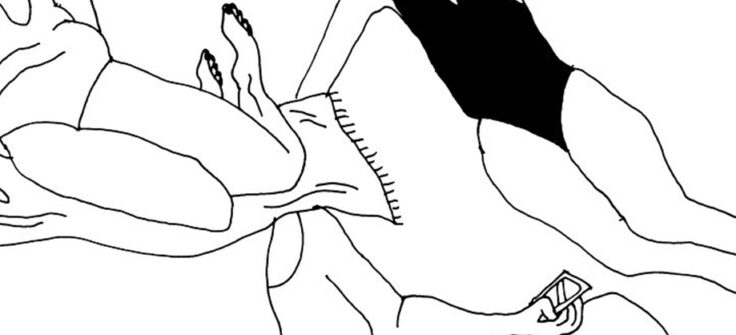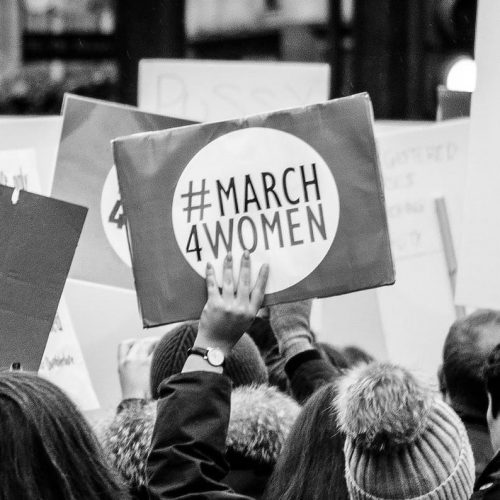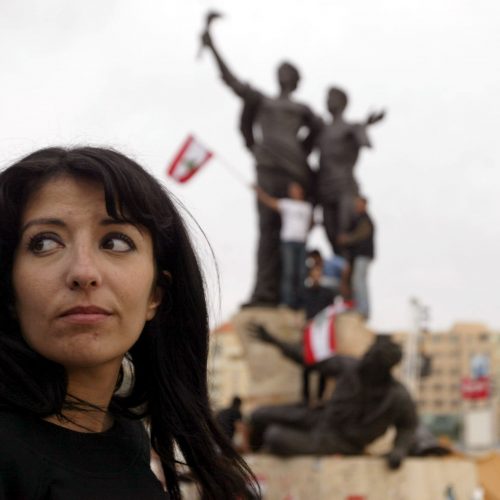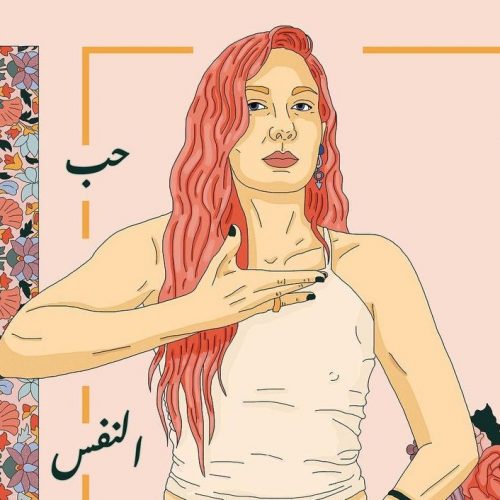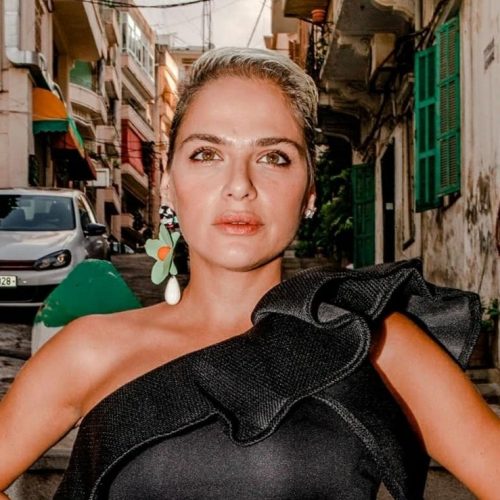The worlds of fashion and beauty have long promoted narrow and discriminative beauty standards, especially in relation to women.
As Arab women, we’re not only subject to unrealistic Western beauty standards that don’t represent us, but we usually end up embracing a radical cult of femininity, forcing us to conform to standards and trends that inherently exclude us.
But with fashion finally starting to take inclusivity and body positivity seriously, body ideals are shifting and more women are feeling more comfortable in their skin. We caught up with five young Arab women to find out about their body shaming experiences and how they fought back.
Caline, 25, Lebanese
“When I was younger, I went to a very white French private catholic school where I think I was the only Arab. Until I was 14, I still couldn’t wax my upper lip and eyebrows. I used to have a lot of comments on that. Boys used to say that I have a moustache hairier then theirs. I developed a huge complex. My self-esteem was at its worst. I couldn’t help but compare myself to the other girls. And up until now, one of the things I’m most jealous of is girls with no body hair or facial hair.
Now I’m trying to accept my body as it is. For example, I let my eyebrows grow more and they’re thicker than before and I love that natural aspect of it. But I would never stop waxing in between my eyebrows for instance. Things are definitely evolving, seeing girls with armpit hair, as a statement made me really happy and more comfortable in my struggle. Seeing pictures of belly buttons with hair around it, or that Adidas ad with the girl that was proudly showing off the hair on her legs made me feel like at the end of the day, some people see it as beautiful, and it gives me hope that one day I’ll be more comfortable with my own body and facial hair”.
Sabrine, 23, Iraqi
“I experienced body shaming when I started to develop breasts. They grew pretty quickly, I remember one distant uncle had an issue with the fact that I looked so womanly at such a young age (12) and I remember him having a tantrum about it, and said I needed to find a way to conceal it. Luckily my mum certainly didn’t put up with it! She told him off firmly, as she was conscious of the fact that I was at a vulnerable age where that could impede my thinking. Unfortunately I spent the rest of my teen years paranoid about my breasts to the point where I quit any exercise and sports because I didn’t want another reaction like that, I didn’t want people to pay attention to them. I spent a lot of time wearing black baggy clothes to conceal them.
I feel like social media counters any efforts to progress body shaming, it sets a mean average based on these highly operated highly photoshopped girls, so when a regular unedited girl posts a picture, body shamers are astounded and go on the attack, because their eyes have become so accustomed to unnatural body types”.
Mariam, 19, Tunisian
“Body shaming is very subtle, it’s not necessarily people making fun of you directly but it’s in all these little things that we hear. For example family members tell you that you’ve gained weight and have a huge debate about it when you didn’t ask for anyone’s opinion. It makes me feel like I’m mistreating my body as if I owe it to society to have a perfect silhouette, a flat belly and a thigh gap. I feel ashamed and embarrassed because I’m put in a position where my body keeps being dissected by others.
I think my body has been mistreated for too long and it needs to rest. I am fighting against it by trying to love myself, which is probably one of the hardest things a woman can do nowadays. One way of putting an end to body shaming is starting early, mostly during childhood because these standards are set at an early stage. Having cartoons with curvy female leads help girls identify to realistic norms. I also believe that reducing, if not eliminating the amount of products that appeal to a girls’ body shape can help get rid of toxic ideas in society and create a safe space for women to love the bodies they have”.
Shoug, 27, Kuwaiti
“I started experiencing body shaming when I was a kid, as I was always bigger than most of my friends. There was always a debate around me. I could hear my family discussing my shape and how they could do something about it. Because I was quite outgoing and sociable, they would say things like, “she’s fat, but she’s funny at the end of the day”. Not only do they judge me, but I also feel like they’ve always felt sorry for me, but I never needed their hypocritical pity.
I know they think I’ll never find someone who would love me if I don’t lose weight and even if they won’t be mean in front of me, it’s just about these implicit comments that really make you feel bad and angry inside. When I’m with my friends and cousins, I hear them rating beauty according to things like weight and hair. So even if they don’t say things to me, I feel the pressure inside. The thing is, these people live in their bubble and don’t understand that societies are changing and that what they think isn’t even relevant to me anymore. So I let them speak and try to be strong. I’m proud of my curves, they’re part of who I am and I’m happy that brands have started embracing body positivity and neutrality, I feel stronger than ever”.
Nour, 24, Lebanese
“Basically every time I go back to Beirut, I get shamed! It is very common in Lebanese culture to discuss weight, with first questions often being leh da3fane? (why so skinny?). Especially last year, after I lost my stepfather and had a lot of personal issues. I lost around 10 kilos without realizing and was reminded of that every single time somebody saw me. I felt accused of something I had no control of, and I also felt like my space was overstepped because people were having opinions about my body. It’s a very weird feeling.
However messed up my brain is or how much it’s suffering or in bad shape then that’s fine, as long as you look good. I have answered back to people. I’ve expressed that their comments are irrelevant and what’s important is that I feel good like this. I once stood up to a woman I didn’t know who told me across a room full of people “You have to gain some weight. It’s not nice the weight you are at now”, to which, a family friend in the room reacted to by hugging me and telling people I’ve gone through tough times and now I’m going to start eating. I stood there, in this room with strangers diagnosing me with depression, and pitching in on ideas about my body because it didn’t fit their ideals although I was comfortable with it”.
Photography by Roshbena





